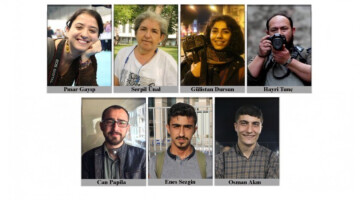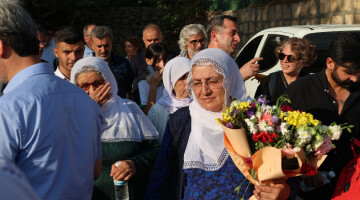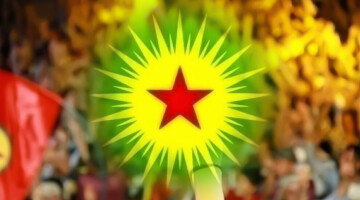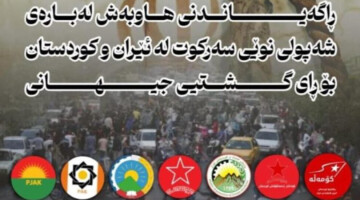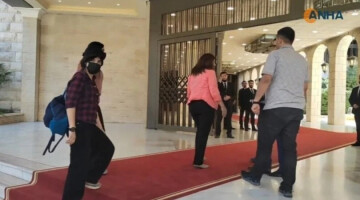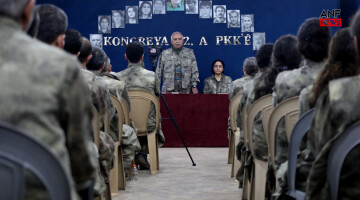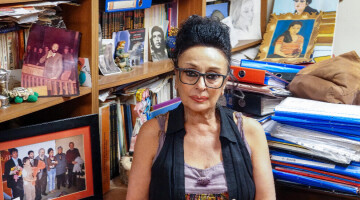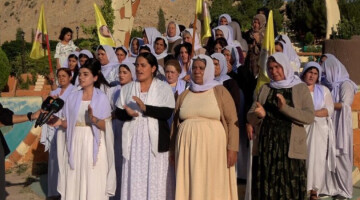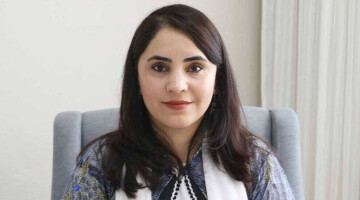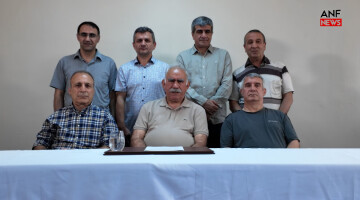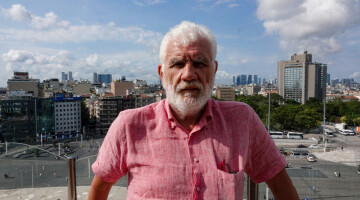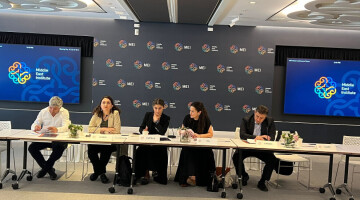Seventeen years ago today, nine people were killed when clashes erupted at a football match in the Kurdish-majority city of Qamishlo between supporters of a local team and those of an Arab team based in Deir Ezzor.
The following day, mourners at the funeral procession for the victims chanted anti-Bashar al-Assad slogans and raised Kurdish flags.
Syrian security forces opened fire, killing 23 people and sparking days of protests and rioting in northern Syria’s Kurdish regions (Al-Hasakah, Kobani, Afrin) as well as Kurdish-majority neighborhoods of Aleppo and Damascus.
The revolts were crashed by al-Assad forces but the Syrian regime was forced to recognize Kurds.
Speaking to ANF, Suleiman Ereb, a member of the Local Government Board and the PYD Assembly, said that 12 March 2004 was a historic day for the people of Rojava.
"This incident was a serhildan, a rebellion," Ereb said. Reminding the oppression the Kurdish people were subjected to and the politics developed against the Kurdish people Ereb said: “When the Qamishlo massacre took place, the Baath regime used weapons against the people, children and civilians fell martyr. The people reacted as this could no longer be tolerated. The people rebelled, the people of Rojava took to the streets and did not accept the state's policy. This was the beginning of the spring of the peoples. The Kurdish people had made their decision, the spring of the Middle Eastern peoples would start.”
Emphasizing that Kurds reacted to Afrin from Dêrik to protest the attack against the serhildan in Qamishlo and against the state, Ereb also reminded that the Syrian state aims at instilling fear in the people with these attacks, massacres and arrests.
“The state was also trying to create enmity among the peoples. Especially, it tried to create strife between the Kurdish and Arab people. The Baath regime has not been successful in this policy."
Ereb added: “The Kurds established their unions and started to develop a new idea. It has become clear that the Kurds needed a defense force, administration and organization. Contrary to what the state had planned to achieve with this massacre, hostility between the Kurdish and Arab peoples did not develop, nor did the chauvinistic feelings the state hoped to create.”
Stating that the Qamishlo serhildan lit the first spark of the Rojava revolution, Ereb said: “If the Kurds had not carried out that uprising on 12 March, the gains of the 19 July Revolution might not have been that great, or this organization might not have been formed. In this sense, the 12 March serhildan has become a legacy for the peoples."
Emphasizing that the Damascus government has not been officially asked to account for the Qamishlo massacre, Ereb reminded that dozens of young people were martyred, dozens of people were injured and hundreds of people were arrested.
Ereb continued: “With the 19 July Revolution, the establishment of the Autonomous Administration, the formation of self-defense forces, the formation of the YPG, YPJ and Syrian Democratic Forces (SDF), and the established common democratic life were the biggest response to the chauvinist Baath regime. Today, the Autonomous Administration system constitutes the biggest alternative to the Ba'ath regime. However, the government of Damascus has so far insisted on a chauvinist mentality and neither accepts talks nor accepts the start of a political process so that we can create a democratic Syria.”
Ereb reminded that he was at the university in Aleppo at the time of the Sherildan and noted that they received the news of riots in all Kurdish cities and that they also established their organization as Kurdish youth.
Stating that the Kurds formed their milicias, Ereb said: “The pressure of the state was very harsh. For the first time, the intelligence and military power of the state entered the universities in Syria. Hundreds of young people were arrested. Dozens of these young people had to leave their schools and leave Syria.”
Ereb reminded that “today, the stadium is named after the 12 March martyrs. On this anniversary, two football teams from Deir Ezzor and Qamishlo will face each other. This competition is also a response to the chauvinistic mentality. Now the people of Deir Ezzor take their place in the revolution. It plays an important role in the brotherhood of democratic nations and peoples with great trust in the Autonomous Administration. The Autonomous Administration and democratic nation project in Northern and Eastern Syria is growing day by day."


